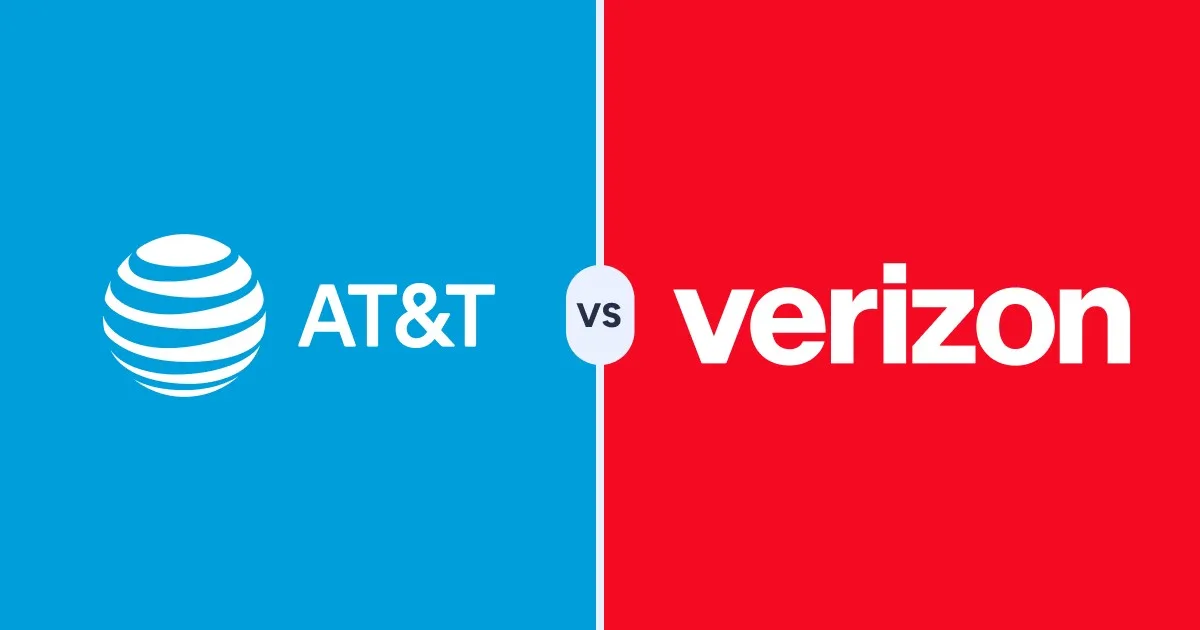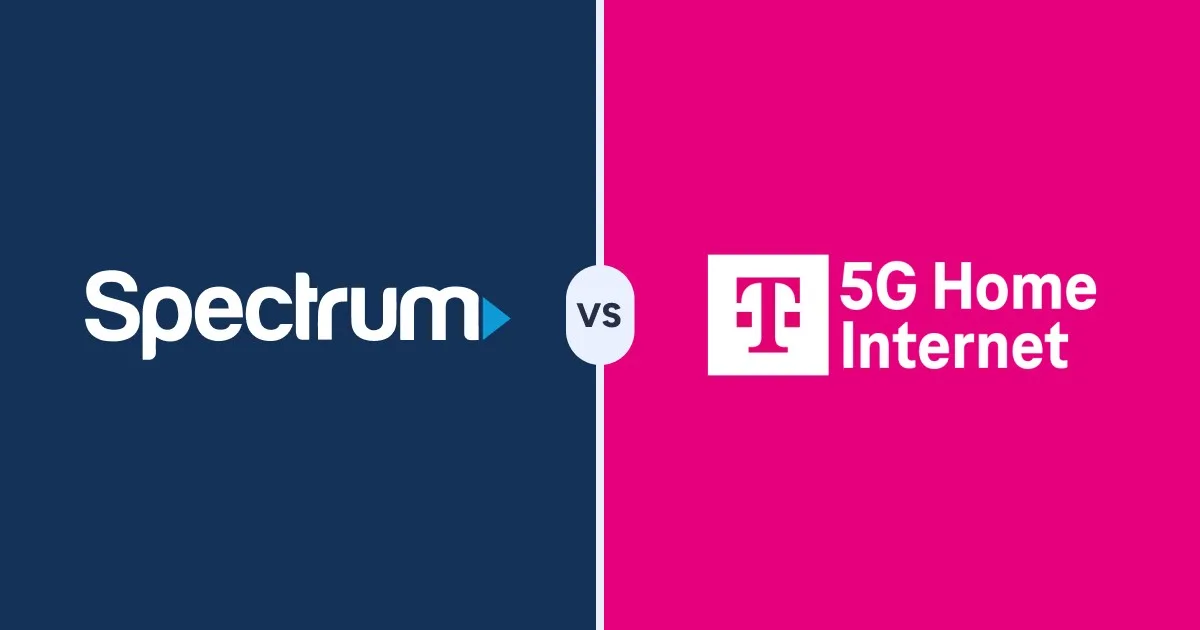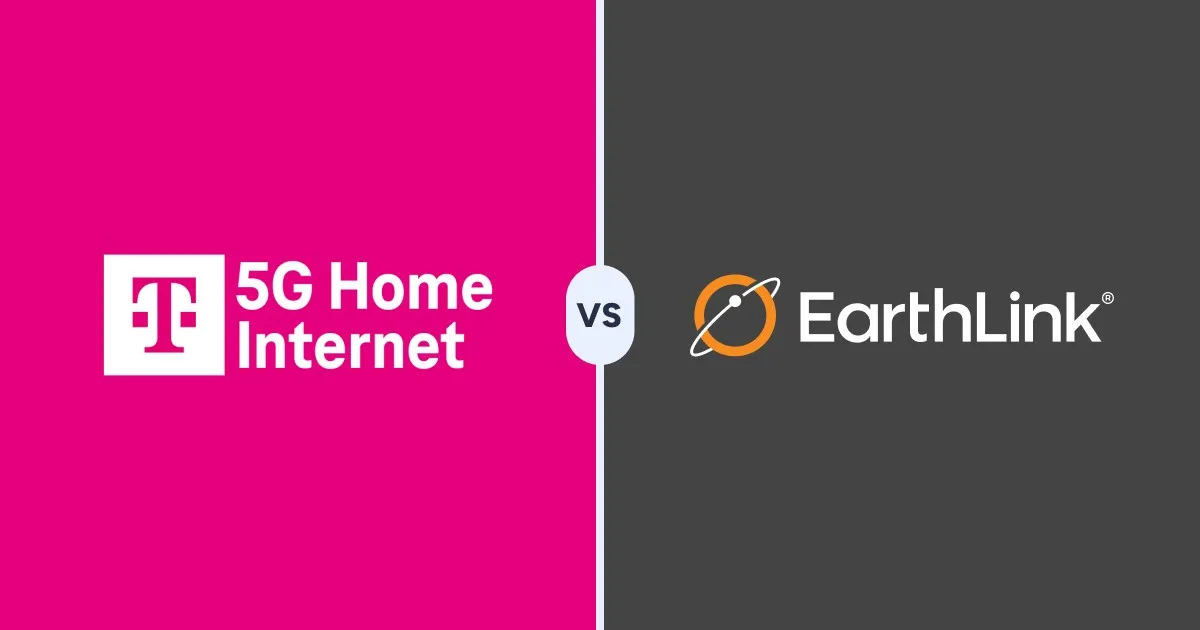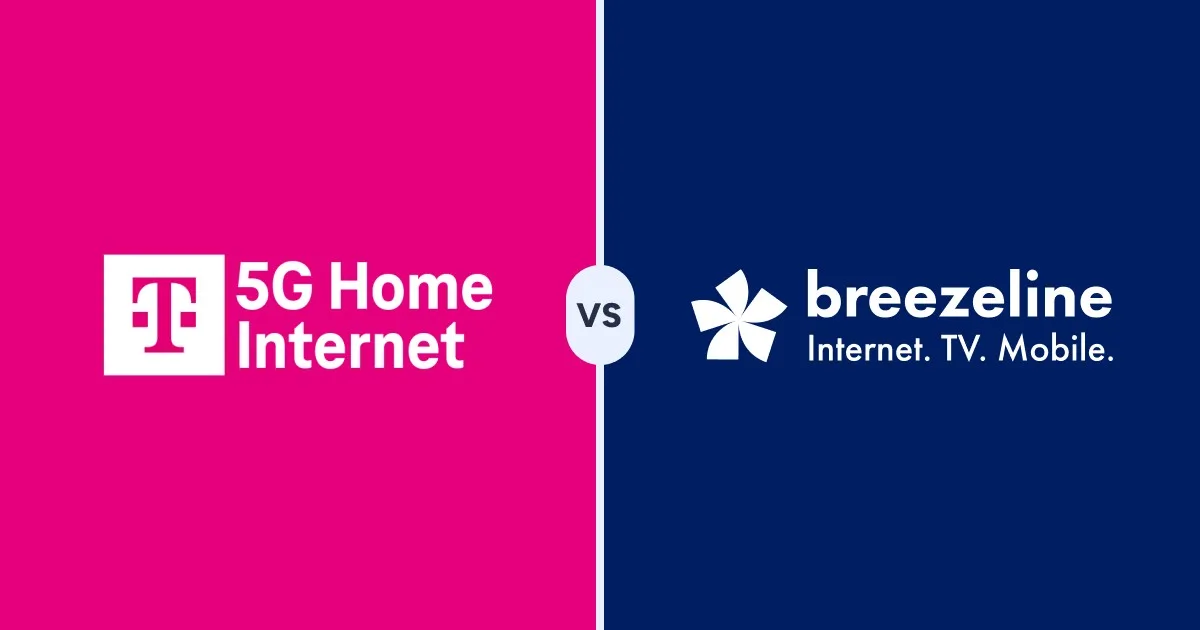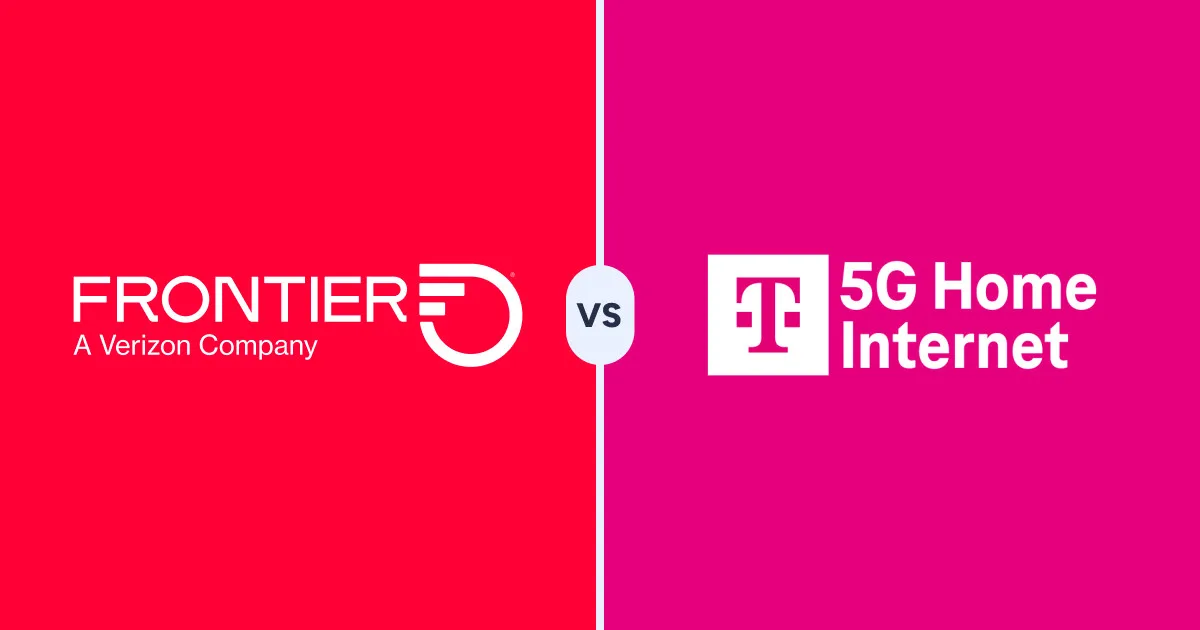Cox vs. T-Mobile: Which Internet Provider Is Best for You?
T-Mobile’s convenient and affordable service is perfect for average internet use, but Cox has more variety and faster plans.
Feb 11, 2026 | Share
Provider Comparisons (Versus)
-
Best for Customer Service
- Customer rating: 3.6/5
- Price: $55–$115/mo.*for 24 mos.
- Speed: 300Mbps–2,000Mbps
- Internet type: Cable
- Data cap: 1.2TB
- Contract: 1-year contract, month-to-month, and prepaid options
-
Best for Value
- Customer rating: 4.1/5
- Price: $50–$70/mo.†
w/ AutoPay, plus taxes & fees. - Speed: Up to 498Mbps
- Internet type: 5G fixed wireless
- Data caps: None
- Contract: month-to-month
* Excludes taxes and fees. No annual contract. For 24 mos.
† Guarantee exclusions like taxes and fees apply.
Compare Cox and T-Mobile head to head
T-Mobile provides one of the most hassle-free and all-inclusive services we’ve seen yet. Fast speeds, great perks, and a breezy setup all come at a very good price.
Cox has more options and even faster speeds, but tends to be a little more pricey and complicated. For most customers, it comes down to whether or not you need Cox’s faster speeds and if those speeds are worth giving up T-Mobile’s low pricing and convenience.
On this page:
Plans and pricing | Extra fees | Customer ratings | Bundles | Internet connection types | Data caps | Contracts | Installation | Availability
On this page:
Pros and cons: Cox vs. T-Mobile
 Pros:
Pros:
- Faster speeds
- Good plan variety
 Cons:
Cons:
- Expensive installation
- Price hikes after 12 months
- Extra fees
 Pros:
Pros:
- 5-year price guarantee
- No data caps
- No contracts
- Easy setup
 Cons:
Cons:
- No gigabit speeds
Want to know if you can get Cox or T-Mobile?
Enter your zip code below to find out.
Plans and pricing: Cox vs. T-Mobile
T-Mobile and Cox offer a variety of plan options. Which is best for you comes down to whether or not T-Mobile’s bandwidth meets your needs.
Cox plans and pricing
| Plan | Price | Download speed |
|---|---|---|
| Fast | $55/mo.* for 24 mos. | Up to 300Mbps |
| Go Even Faster | $85/mo.* for 24 mos. | Up to 500Mbps |
| Go Super Fast | $100/mo.* for 24 mos. | Up to 1,000Mbps |
| Go Beyond Fast | $115/mo.* for 24 mos. | Up to 2,000Mbps |
*Excludes taxes and fees. No annual contract. For 24 mos.
Cox certainly has faster speeds than T-Mobile. Cox’s cable internet is one of the main broadband workhorses in the U.S.; it’s fast, reliable, and readily available. But keep in mind, Cox’s advertised prices are not as worry-free as T-Mobile’s due to extra fees like modem rental and installation fees.
Installing cable internet is also more of an ordeal because of the need for coaxial cabling to and throughout your home. However, if you want ultrafast speeds, Cox has them.
T-Mobile plans and pricing
| Package | Price | Speed |
|---|---|---|
| Rely Home Internet | $50/mo.* w/ AutoPay, plus taxes & fees. | Up to 318Mbps |
| Amplified Home Internet | $60/mo.* w/ AutoPay, plus taxes & fees. | Up to 498Mbps |
| All-In Home Internet | $70/mo.* w/ AutoPay, plus taxes & fees. | Up to 498Mbps |
* Guarantee exclusions like taxes and fees apply.
T-Mobile has five internet plan options and they are all solid; mainly because they cover everything for a low price: there are no hidden monthly fees, rental costs, or price hikes. You get fast service, unlimited data, no annual contract, and a free rental gateway. You’ll get a 5G gateway with the Rely plan or a Wi-Fi 7 gateway with the Amplified and All-In plans.
With speeds up to 498Mbps, T-Mobile’s fixed wireless is fast enough for the majority of households. In our home test of T-Mobile’s home internet, we almost always clocked speeds at or above the advertised speed range, but the quality of service will depend on how good your home’s 5G reception is.
In general, a 5G wireless signal, like that used for T-Mobile’s internet service, is going to be less stable than Cox’s cable internet. But, again, we didn’t experience any issues in our home test, and according to our annual customer satisfaction survey, reliability isn’t an issue for most T-Mobile Internet customers.

Deals and promotions: Cox vs. T-Mobile
- Get a price lock guarantee for up to five years and unlimited data when you combine an unlimited mobile line with select internet speeds
- Get a gift card worth $125 when you refer a friend to Cox and earn up to $600 per year
- Veterans and community servants with GovX eligibility can get a gift card worth up to $200 with certain Cox home internet plans

- Get up to $300 back when you sign up for a new T-Mobile 5G Home Internet plan up by April 1
- Get a 5-Year Price Guarantee with any T-Mobile 5G Home Internet plan and some T-Mobile Fiber plans, not including taxes and fees
- Get $10 off your monthly bill for T-Mobile Fiber 1 GIG or 2 GIG with any T-Mobile voice line
Want to know if Cox or T-Mobile are in your area?
Take a look by typing in your zip code below.
Extra fees: Cox vs. T-Mobile
| Equipment Fee | Installation Fee | Other Fees | |
|---|---|---|---|
| Cox | $13.00/mo | $100.00; free self-installation | $10.00/mo. (early termination), late fees based on state laws and regulations |
| T-Mobile | Free rental gateway | None | None |
T-Mobile has no extra fees: no install fee, no equipment rental fee, and no data charges. Cox, is the opposite, packing all the usual ISP charges, with the $100 installation fee being a particularly tough pill to swallow.
Customer ratings: T-Mobile vs. Cox
| Overall | Reliability | Customer service Rating | Speed | Price | |
|---|---|---|---|---|---|
| Cox | 3.7 / 5 | 3.7 | 3.8 | 3.9 | 3.4 |
| T-Mobile | 4.1/5.0 | 3.9/5.0 | 4.1/5.0 | 4.0/5.0 | 4.1/5.0 |
T-Mobile received the highest scores in our annual customer satisfaction survey. T-Mobile customers reported being satisfied with every aspect of T-Mobile but were especially happy with their pricing; T-Mobile received the highest price satisfaction score in the history of our survey among national ISPs.
Cox also received high ratings, consistently scoring in the top half of every category. But, between the two, T-Mobile takes the cake when it comes to customer satisfaction.
Best TV and internet bundles
| Internet speed | TV channels | Price | View on Cox site | |
|---|---|---|---|---|
| Cox Go Even Faster + Contour TV Starter | 500Mbps | 75+ | $131/mo.* for 24 mos. | View Plan |
| Cox Go Even Faster + Contour TV Preferred | 500Mbps | 140+ | $185/mo.* for 24 mos. | View Plan |
| Cox Go Even Faster + Contour TV Ultimate | 500Mbps | 250+ | $222/mo.* for 24 mos. | View Plan |
*Prices include applicable monthly recurring service fees and applicable discounts. Excludes charges for existing Cox services. Additional one-time charges, activation fees and monthly equipment fees may apply. Prices do not include applicable taxes, usage-based charges, fees, and surcharges, which are subject to change. Prorated charges may appear on your bill if you change services before the bill cycle is complete.
TV and internet bundles are one area where T-Mobile can’t compete as it doesn’t offer TV service. But if you sign up for T-Mobile’s All-In plan, you’ll get Paramount+ and Hulu included at no extra cost.
Cox on the other hand has over 10 different TV and internet bundles to choose from, making it easy to find something that fits your needs. Cox’s bundle discounts are modest, but it is convenient having your internet and TV service grouped under the same bill.
Internet types: Cox vs. T-Mobile
| Internet type | View on provider site | |
|---|---|---|
| Cox | Cable | View Plans |
| T-Mobile | 5G Fixed-wireless | View Plans |
Cox’s cable internet has a leg up on T-Mobile’s fixed-wireless. Cable internet is faster, more reliable, and has better latency than fixed-wireless. This is why Cox is able to offer faster speeds. Internet tech has come a long way in the last decade, but you still can’t beat a solid wired connection. If you need uncompromising stability and ultra-fast gig speeds, Cox is the way to go.
That being said, our experience with T-Mobile’s fixed wireless was outstanding. We had it running side-by-side with a Cox cable internet connection and didn’t notice much difference. The T-Mobile connection was a little less stable, but it was barely noticeable. The low price and added convenience of T-Mobile’s service easily make up for this minor shortcoming.
Data caps: Cox vs. T-Mobile
| Data Cap | View on provider site | |
|---|---|---|
| Cox | 1,280GB | View Plans |
| T-Mobile | Unlimited | View Plans |
T-Mobile’s unlimited data means you don’t have to stress counting gigabytes or worry about data overage fees. Cox imposes a standard 1.28TB data cap, but that’s more than enough for most households. In the US, average internet monthly data use is around 600GB, about half of Cox’s 1.28TB data cap.
Contracts: Cox vs. T-Mobile
| Contract length | View on provider site | |
|---|---|---|
| Cox | 1-year, month-to-month option for $10/month extra, or prepaid (new) | View Plans |
| T-Mobile | month-to-month | View Plans |
T-Mobile continues the theme of simplicity and convenience with its month-to-month internet plan that you can cancel at any time with no penalty. Cox takes a more standard approach, with 12-month contracts on most plans. You can get a month-to-month plan with Cox, but it costs extra.
Installation: Cox vs. T-Mobile
| Provider | Installation options | View on provider site |
|---|---|---|
| Cox |
| View Plans |
| T-Mobile |
| View Plans |
Both T-Mobile and Cox offer a free self-installation. T-Mobile’s self-installation is a lot easier due to not requiring any networking cables. For a self-install to work with Cox, your residence needs to have an active connection to Cox’s cable internet network.
To learn more about Cox and T-Mobile internet installations, see our install guides:
Availability: Cox vs. T-Mobile
Both of these ISPs have huge coverage areas, but T-Mobile’s wireless delivery gives it the edge. Cable internet networks also have excellent coverage in the U.S., but usually, only one cable ISP is available in any given area. The good news is you can skip the guesswork and use our handy zip code search tool below to instantly get a list of ISPs in your area.
To see if Cox or T-Mobile is in your area, enter your zip code below:
Final call: Cox vs. T-Mobile
If you have average internet needs and want a hassle-free internet service at a great price, T-Mobile is the way to go. It’s fast enough, the setup is super easy, and you don’t have to worry about any pesky fees or data limits. On the other hand, if you need a lot of bandwidth for a large household or intense internet use, Cox’s cable internet is technically superior. It delivers up to gig speeds and comes with the reliability of a wired network.
Methodology
Our HighSpeedInternet.com editorial team bases our analyses on customer input from our annual customer satisfaction survey, results from our speed test tool, and proprietary internet provider data on speeds and pricing. To strengthen our research, we look closely at provider contracts to get hard-to-find information on price hikes, data caps, and extra fees, and we keep tabs on the latest news reports and online reviews. When applicable, we also rely on our personal experiences testing these services.
More about Cox and T-Mobile
Disclaimer
Product prices and availability are accurate as of the date/time indicated and are subject to change. Any price and availability information displayed on Amazon.com at the time of purchase will apply to the purchase of this product. HighSpeedInternet.com utilizes paid Amazon links.
CERTAIN CONTENT THAT APPEARS ON THIS SITE COMES FROM AMAZON. THIS CONTENT IS PROVIDED ‘AS IS’ AND IS SUBJECT TO CHANGE OR REMOVAL AT ANY TIME.
Author - Austin Aguirre
Austin worked as a broadband technician installing and troubleshooting countless home internet networks for some of the largest ISPs in the U.S. He became a freelance writer in 2020 specializing in software guides. After graduating with a BS in technical communication from Arizona State University, he joined the team at HighSpeedInternet.com where he focuses on home network improvement and troubleshooting.
